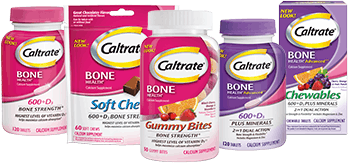VITAMIN D DEFICIENCY
Vitamin D deficiency is far more common in the U.S. than many people realize. While recent studies have indicated different degrees of insufficiency, most concluded that deficiency is prevalent. A 2009 study published in the Archives of Internal Medicine discovered that 75% of American teens and adults lacked adequate vitamin D levels. Another study published in the American Journal of Clinical Nutrition around the same time found that even when using a much more conservative threshold at least 1 out of every 10 Americans suffer from vitamin D deficiency. Many people, especially during winter months, don’t get enough sunlight, the most important source of vitamin D. Therefore, unless their diet is rich in vitamin D, they may be at risk for deficiency.
Because vitamin D is critical for the absorption of calcium and phosphate, inadequate levels of vitamin D can critically affect bone health. When the body has enough of both vitamin D and calcium, it can build up an abundance of calcium in the bones, which strengthens them. When vitamin D levels are low and the body isn’t able to utilize incoming calcium, it produces hormones that release these minerals from stores in bones. This depletion can cause a weakness in bones that can lead to, among other things, an increased prospect of injury. Bone health disorders such as rickets and osteoporosis have also been connected to vitamin D deficiency.

According to the Institute of Medicine, the Recommended Dietary Allowance (RDA) for adults 19-50 is at least 600 IUs per day, with some studies suggesting the need for more. The upper intake level is 4,000 IUs per day and excessive vitamin D levels can have harmful effects on the health, so make sure to read the labels of the foods and supplements you consume. For more information on vitamin D and calcium, check out the articles “The Benefits of Vitamin D3,” “The Benefits of Calcium,” and “How Calcium and Vitamin D3 Work Together.”
BONE HEALTH CENTRAL
The story of your bones: calcium at every age
Calcium plays a key role throughout each stage of your life. Find out what your calcium needs are.



